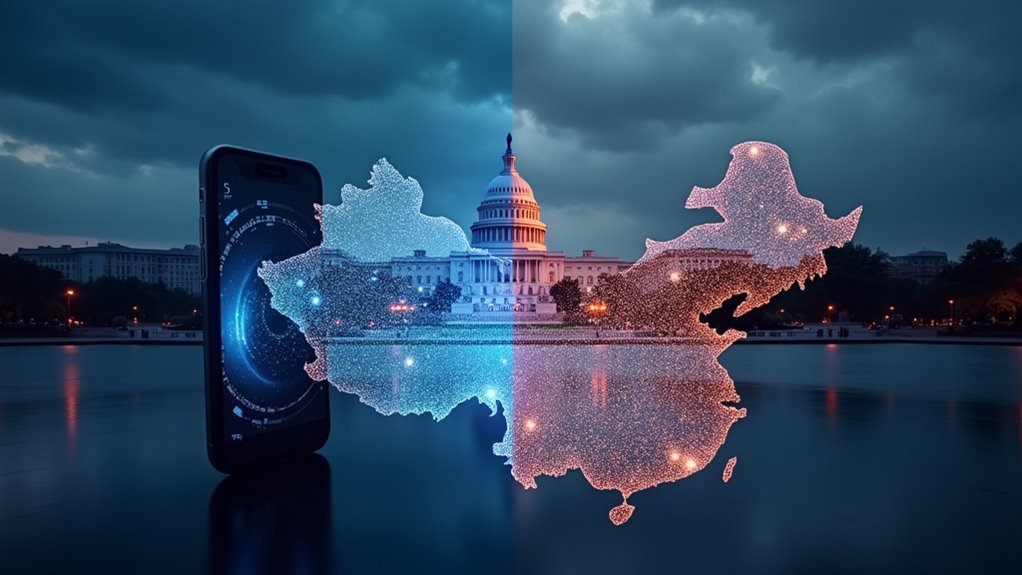Apple’s partnership with Alibaba has ignited a firestorm on Capitol Hill. Lawmakers from both parties are sounding alarm bells over national security risks, given Alibaba’s ties to the Chinese government. The deal aims to boost Apple’s AI capabilities in China—where it desperately needs market share—but critics worry about data privacy and potential CCP access to user information. Apple’s PR team remains conspicuously silent, which isn’t exactly calming anyone’s nerves. The fallout could reshape tech partnerships for years to come.
Apple has quietly stepped into a geopolitical minefield with its controversial AI partnership with Chinese tech giant Alibaba, triggering alarm bells throughout Washington’s corridors of power.
Lawmakers from both sides of the aisle are united in rare bipartisan horror—turns out nothing brings Congress together quite like potential national security threats involving iPhones and the Chinese Communist Party.
The deal, which would potentially allow Alibaba to process data from US Apple users, has defense and intelligence officials scrambling.
They’re particularly concerned about Alibaba’s reported connections to China’s military and Communist Party leadership. Talk about awkward business bedfellows.
Representative Raja Krishnamoorthi didn’t mince words, calling the secrecy surrounding the agreement “extremely disturbing.”
Meanwhile, the Trump administration has been characteristically vocal in its criticism, with proposals already circulating to add Alibaba to a US business blacklist.
Nothing says “we don’t approve” quite like federal prohibition.
For Apple, the stakes couldn’t be higher. China represents their second-largest market, accounting for roughly 20% of total sales.
As their smartphone market share in China continues to slip, the company seems desperate to integrate local AI capabilities to regain competitive edge.
The question is: at what cost?
The deafening silence from Apple headquarters isn’t helping matters.
While Alibaba has confirmed partnership details, Apple’s PR team appears to have gone into hibernation mode.
This information vacuum has only fueled speculation about potential compromises hidden within the fine print.
The partnership raises troubling questions about data privacy, with experts worried about Chinese authorities potentially gaining unprecedented access to foreign user information.
Could your embarrassing Siri requests become fodder for analysis in Beijing? It’s not outside the domain of possibility.
The collaboration faces additional scrutiny given Apple’s recent history of dropping partnerships due to political pressure, as evidenced when they abandoned their deal with YMTC due to US pressure.
The partnership specifically aims to enhance AI features for Chinese iPhone users, according to statements from Alibaba’s chairman earlier this year.
This deal exemplifies the concerning algorithmic bias issues that arise when AI systems are developed with limited transparency and potentially skewed data priorities.
As scrutiny intensifies, Apple may be forced to reconsider its China strategy altogether.
When balancing market access against reputation and regulatory compliance, even tech giants sometimes find themselves between a rock and a communist hard place.









